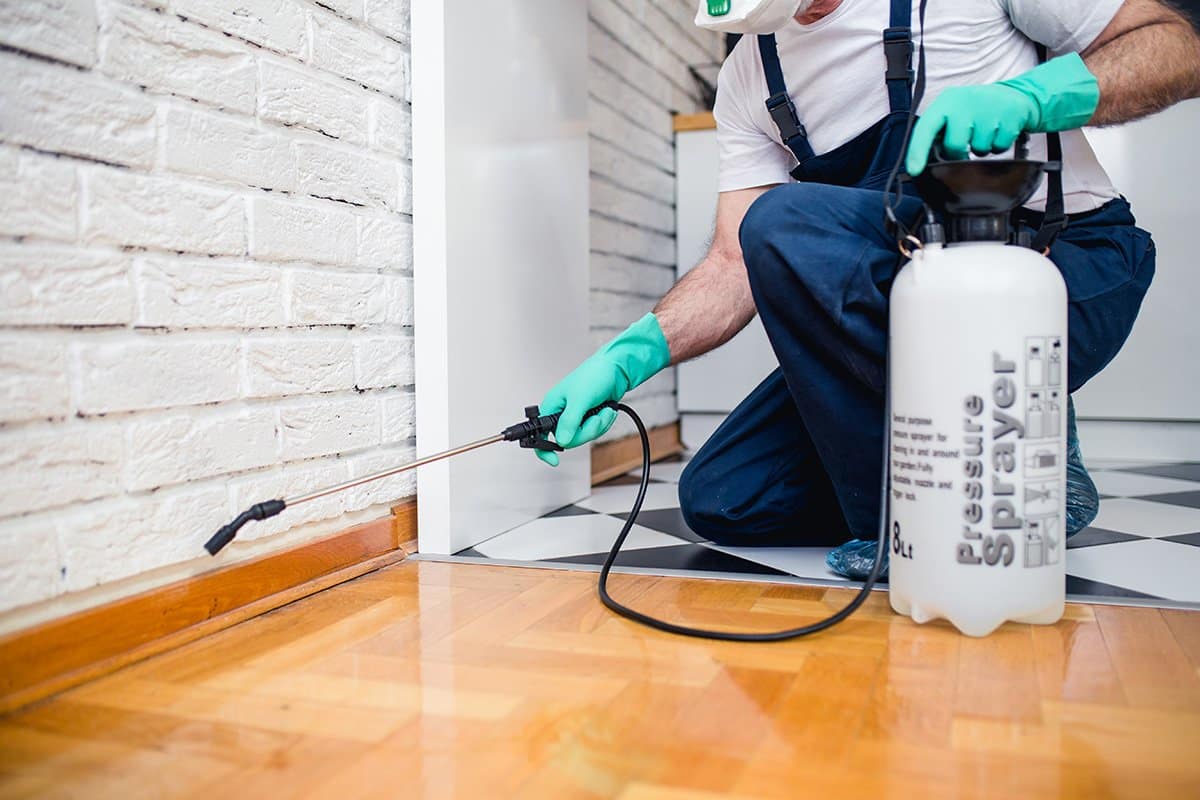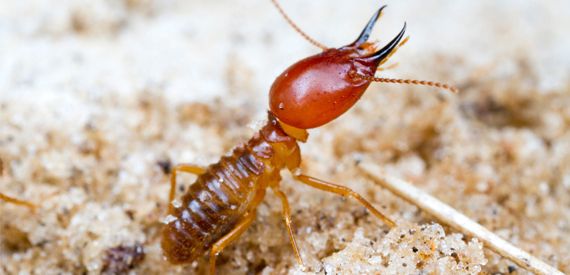Advanced Termite Control: Proven Methods for Eliminating Termite Infestations
Advanced Termite Control: Proven Methods for Eliminating Termite Infestations
Blog Article
Ecological Influence of Pest Control: Harmonizing Performance With Sustainability
The ecological influence of pest control is a vital concern that calls for a fragile balance between achieving effectiveness in managing insects and making sure sustainability of our environments. From the usage of harmful chemicals that permeate right into our dirt and water to the unexpected effects on non-target varieties, the effects of traditional bug control techniques are far-ranging.
Hazardous Chemicals in Insect Control
The application of harmful chemicals in pest control poses significant ecological and wellness threats that necessitate mindful factor to consider and reduction methods. Pesticides, herbicides, and chemicals are generally used to eliminate pests, but their widespread application can bring about unplanned repercussions. These chemicals can pollute soil, water resources, and the air, impacting not only the targeted pests but additionally beneficial pests, wildlife, and humans.

To deal with these dangers, incorporated insect administration (IPM) techniques are being promoted as an extra sustainable choice. IPM entails a mix of methods such as biological control, habitat manipulation, and the targeted use pesticides as a last hope (ant control stalling nc). By adopting an alternative technique to pest control, we can decrease the ecological and health and wellness effects connected with hazardous chemicals while effectively managing pest populations
Influence on Non-Target Types
Thinking about the unexpected effects of bug control approaches, the influence on non-target types is a crucial element that needs extensive examination. While pest control actions aim to target details bugs, various other microorganisms in the ecosystem may be unintentionally influenced. Non-target types, consisting of advantageous insects, birds, creatures, and also plants, can experience indirect or direct harm from chemical applications or organic control techniques.
Insecticides developed to deal with a certain insect parasite might harm pollinators like bees or natural predators such as ladybugs. Organic control agents, if not species-specific, can posture threats to unintended targets, interrupting the environmental equilibrium.
To alleviate the effect on non-target species, integrated bug monitoring (IPM) techniques that emphasize a holistic strategy to pest control are advised. These techniques prioritize using eco pleasant methods, lessening damage to helpful organisms while successfully managing pest populations. Performing comprehensive threat evaluations and keeping an eye on the outcomes of parasite control initiatives are vital action in safeguarding non-target varieties and advertising total ecosystem health.
Soil and Water Contamination
Unplanned environmental consequences of parasite control methods expand past affecting non-target types, with significant implications for dirt and water contamination - termite control services. Pesticides, herbicides, and chemical plant foods used in insect control can seep into the dirt and contaminate groundwater, posing a threat to both terrestrial and water communities.
Water contamination is another crucial issue linked with bug control practices. Overflow from farming areas treated with pesticides can lug these chemicals right into close-by water bodies, impacting marine microorganisms and water top quality. Impurities in water resources can have significant repercussions, impacting not only marine life but additionally human wellness through the intake of infected water or aquatic organisms. To minimize soil and water contamination from parasite control tasks, integrated insect monitoring approaches that focus on sustainability and decrease chemical inputs are vital.
Air Contamination From Chemical Usage
Exposure to airborne chemicals throughout agricultural applications presents a significant issue for air pollution control steps. Furthermore, chemical drift, where pesticides are carried by the wind to unintentional locations, can lead to the contamination of close-by ecosystems and water bodies.

Approaches for Sustainable Parasite Control
In the world of farming practices, carrying out lasting insect control strategies is extremely important for keeping environmental equilibrium and safeguarding crop yields. Sustainable look at this website pest control highlights the use of eco pleasant approaches to take care of insect populaces efficiently while minimizing injury to non-target organisms and environments. Integrated Bug Management (IPM) is an extensively adopted approach that incorporates organic, cultural, physical, and chemical control approaches to achieve lasting bug management services.
Plant rotation and diversity are likewise reliable methods to disrupt pest life cycles and create much less positive conditions for parasites to prosper. Ultimately, by incorporating these sustainable bug control strategies, farmers can attain a balance in between pest monitoring efficiency and environmental stewardship.
Conclusion
In conclusion, the ecological effect of insect control techniques need to be meticulously considered to balance performance with sustainability. Hazardous chemicals utilized in pest control can lead to soil and water contamination, air pollution, and harm non-target types - termite control services. It is essential to carry out sustainable insect control methods to minimize these unfavorable results on the setting and advertise a much healthier environment for future generations
By embracing an alternative approach to pest control, we can decrease the environmental and health influences connected with hazardous chemicals while properly managing pest populaces.

To alleviate the air contamination triggered by chemical use, it is necessary to adopt incorporated pest administration strategies that prioritize the usage of non-chemical bug control methods, such as plant rotation, all-natural killers, and resistant crop varieties. Lasting insect control highlights the use of eco pleasant techniques to handle parasite populaces efficiently while lessening damage to non-target organisms and communities. Integrated Insect Administration (IPM) is an extensively taken on technique that integrates organic, social, physical, and chemical control techniques to accomplish long-term parasite monitoring solutions.
Report this page